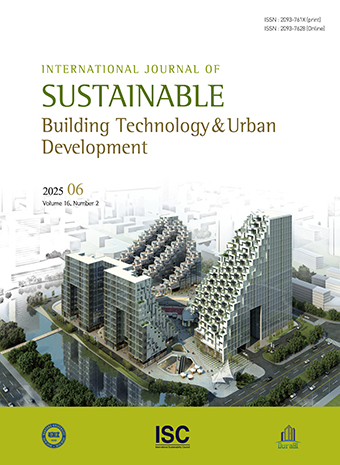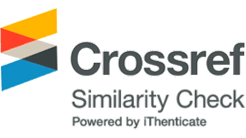General Article
Abstract
References
Information
IPCC, Sections. In: Climate Change 2023: Synthesis Report. Contribution of Working Groups I, II and III to the Sixth Assessment Report of the Intergovernmental Panel on Climate Change [Core Writing Team, H. Lee and J. Romero (eds.)]. IPCC, Geneva, Switzerland, 2023, pp. 35-115, DOI: 10.59327/IPCC/AR6-9789291691647.
10.59327/IPCC/AR6-9789291691647
J. Kim, J. Kang, S. Kim, C. Kim, W. Park, Y. Lee, S. Choi, and S. Kim, Korean General Social Survey 2003-2021 [Online], 2022. Seoul, Korea: Sungkyunkwan University. Available at: https://kgss.skku.edu/kgss/data.do [Accessed 10/10/2022].
- Publisher :Sustainable Building Research Center (ERC) Innovative Durable Building and Infrastructure Research Center
- Publisher(Ko) :건설구조물 내구성혁신 연구센터
- Journal Title :International Journal of Sustainable Building Technology and Urban Development
- Volume : 14
- No :4
- Pages :467-477
- Received Date : 2023-10-04
- Accepted Date : 2023-12-14
- DOI :https://doi.org/10.22712/susb.20230036




 International Journal of Sustainable Building Technology and Urban Development
International Journal of Sustainable Building Technology and Urban Development










